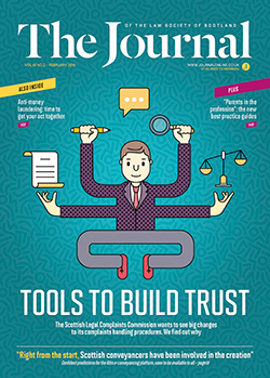Defending the abduction

In 2015 alone, 41 child abductions were processed by the Scottish Central Authority, with 44% of applications being received in the last quarter of the year, presumably due to wrongful removal/wrongful retention taking place over the school summer holidays. “Child abduction” often conjures up the image of children being kidnapped in the dead of night, but in reality it affects many otherwise ordinary families living and working abroad.
The country the child is taken to (or retained in) may well be a signatory to the Convention on the Civil Aspects of International Child Abduction, known as the 1980 Hague Convention. The objects of the 1980 Convention are clearly stated in article 1 as: “(a) to secure the prompt return of children wrongfully removed to or retained in any contracting state; and (b) to ensure that the rights of custody and of access under the law on one contracting state are effectively respected in the other contracting states”.
Given such a an emphatic opening, can child abductions be defended?
Defences are available under the 1980 Convention, article 13; they range from consent, acquiescence and grave risk of an intolerable situation, to the views of the child and whether the petitioner was actually exercising their custody rights at the time of the wrongful removal/retention.
Some recent cases where defences have been successfully invoked include:
FJM v GCM [2015] CSOH 130
A defence of acquiescence was successful under article 13(a). The children were wrongfully removed from Australia to Scotland by their mother without their father’s consent. However, while waiting for the child abduction proceedings to be raised, the father arranged contact with the children in Scotland and while in Scotland the mother persuaded him to attend mediation. When the child abduction proceedings came to court, the mother’s agents lodged a copy of the mediation summary, which purported to show that the father had agreed to the children remaining in the UK. The petitioner submitted that evidence of what occurred during the mediation was inadmissible by the application of s 1 of the Civil Evidence (Family Mediation) (Scotland) Act 1995. Lord Stewart disagreed and held that the 1995 Act does not apply to mediations about cross-border abductions.
AR v RN [2015] UKSC 35
The children in this case were taken from France to Scotland by their mother, with the consent of their father, to remain in Scotland for the period of her maternity leave. The question was whether their habitual residence had changed to Scotland, thwarting articles 3 and 12. In considering this question Lord Reed stated: “It is therefore the stability of the residence that is important, not whether it is of a permanent character. There is no requirement that the child should have been resident in the country in question for a particular period of time, let alone that there should be an intention on the part of one or both parents to reside there permanently or indefinitely.”
On this basis the children were held to be habitually resident in Scotland at the time of the wrongful retention, hence the petitioner’s case for return was unsuccessful.
W v M, Outer House, 2015, unreported
Here a defence of grave risk of an intolerable situation under article 13(b) was successful. The child was wrongfully removed from New Zealand to Scotland. The initial defence was that the petitioner did not have rights of custody, as defined in article 5. Unusually, the case was remitted to New Zealand under article 15 for a determination on rights of custody under New Zealand law. The petitioner was successful in New Zealand and the respondent raised the grave risk defence. This case highlights a shift in article 13(b) defences whereby financial hardship on return is now being considered. The respondent was able to show that as neither she nor the child were New Zealand citizens, she had limited or no access to accommodation, state benefits and health care, and her immigration status when in New Zealand was at best unknown. The petitioner failed to provide adequate undertakings which could have alleviated the financial hardship and return was refused under article 13(b).
Last year’s child abduction cases show that it is no longer the case that defending a child abduction case under the 1980 Convention is necessarily a fruitless exercise.
In this issue
- A trainee perspective on leadership
- Beyond the Bribery Act
- Legal IT: the potential of blockchains
- Directors: the parent over your shoulder
- Ten for starters
- Reading for pleasure
- Journal magazine index 2015
- Opinion: Daniel Donaldson
- Book reviews
- Profile
- President's column
- The big 4-0-0 approaches
- People on the move
- Balance in redress
- Pension allowances: the last chance
- E-conveyancing: the real deal
- Deeds of conditions: not dead yet
- Anti-money laundering: a call to action
- New challenges, new CEO
- Rape terms before the appeal court
- Another year of change
- Defending the abduction
- The right to snoop?
- Fond farewell
- Scottish Solicitors Discipline Tribunal
- Dilapidations: enforcing the bargain
- Title out of nothing
- Charged and ready
- Updates from the OPG
- The family way
- Conflict of interest: the questions still come
- Seeking growth
- Fraud: a battle of wits
- Light to a Safe Harbour
- Through the client's eyes
- Ask Ash
- Law reform roundup






